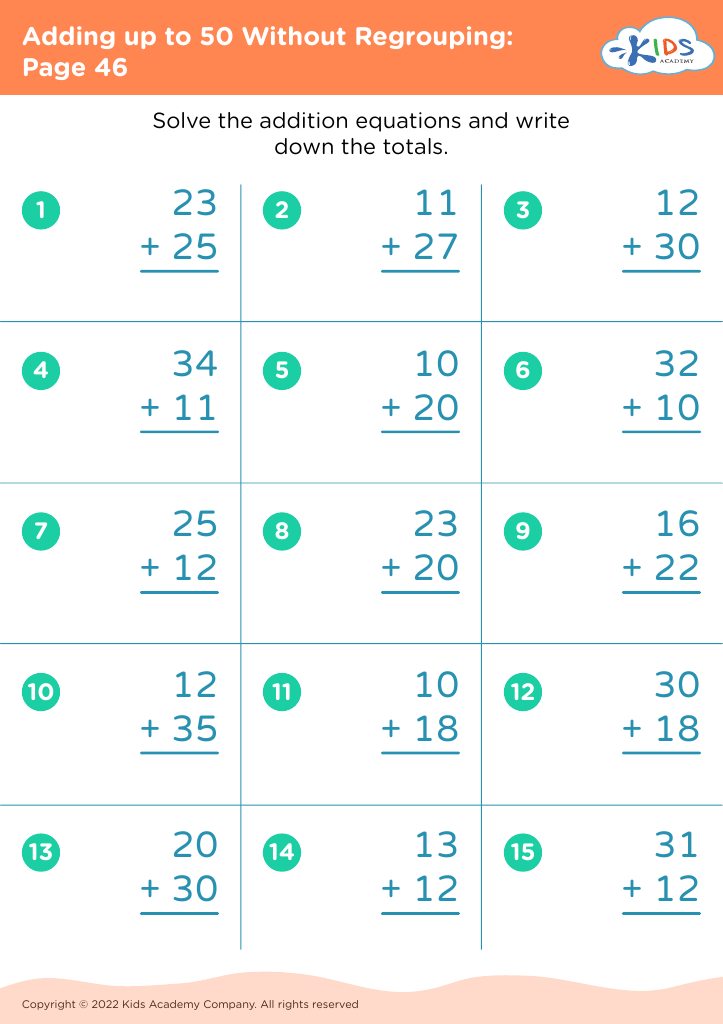Shape identification Adding up to 50 Worksheets for 8-Year-Olds
3 filtered results
-
From - To
Discover our engaging "Shape Identification Adding Up to 50 Worksheets" designed specifically for 8-year-olds! These interactive worksheets help young learners strengthen their math skills while exploring various shapes. Combining shape identification with addition exercises, students will practice recognizing geometric figures like circles, squares, and triangles, all while enhancing their ability to add numbers up to 50. Perfect for home or classroom use, these worksheets offer a fun way to reinforce essential skills and boost confidence in math. Encourage a love for learning with our thoughtfully crafted resources that ensure educational success. Download and watch your child thrive in shape identification and math today!
Shape identification and adding up to 50 are essential skills that contribute significantly to an 8-year-old's cognitive development and mathematical understanding.
Understanding shapes helps children recognize patterns, classify objects, and develop spatial awareness, which are crucial for problem-solving in everyday scenarios. As children engage with shapes, they learn about their properties and relationships, fostering critical thinking skills. This foundation is vital for subjects like geometry later in life.
On the other hand, adding up to 50 equips children with essential arithmetic skills. Mastering addition builds confidence in their mathematical abilities and is a prerequisite for more complex calculations. It reinforces their number sense, helping them understand quantity, place value, and how numbers interact with one another.
Furthermore, both skills promote collaboration and communication in learning environments. Engaging in exercises that involve identifying shapes and adding numbers allows children to work together, enhancing social skills and encouraging a positive classroom culture.
Parents and teachers should pay attention to these skills because they not only prepare children for future academic challenges but also for practical daily tasks. Together, these competencies build a strong foundation for lifelong learning and encourage a positive attitude towards mathematics.















